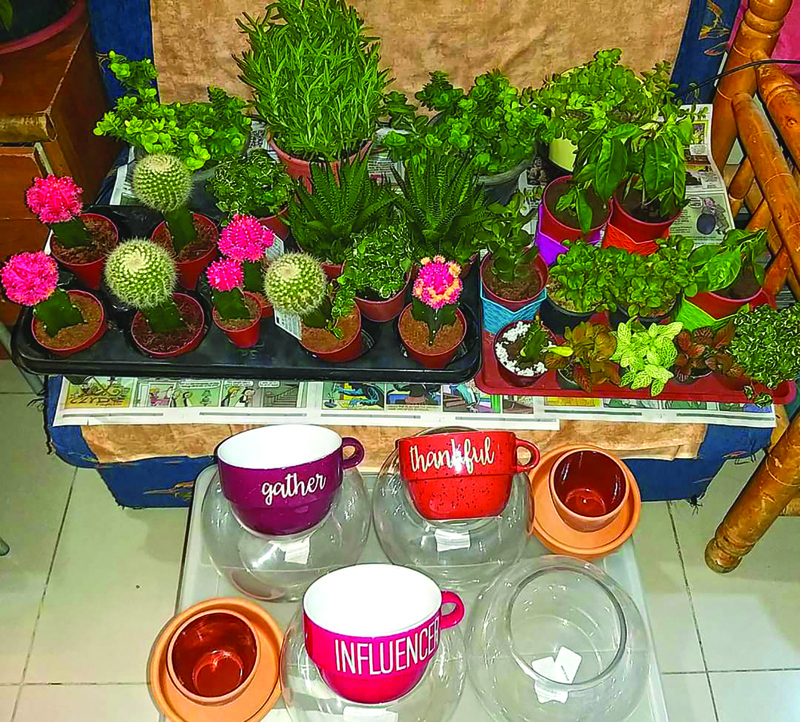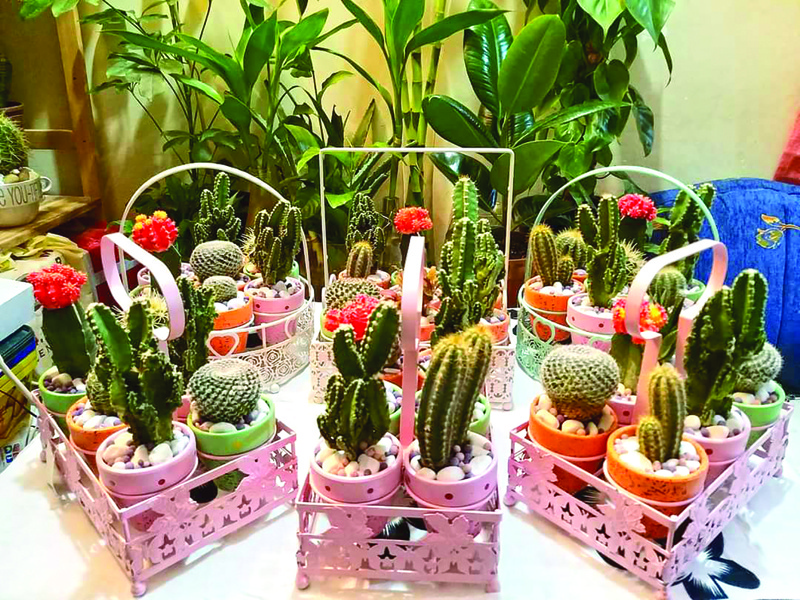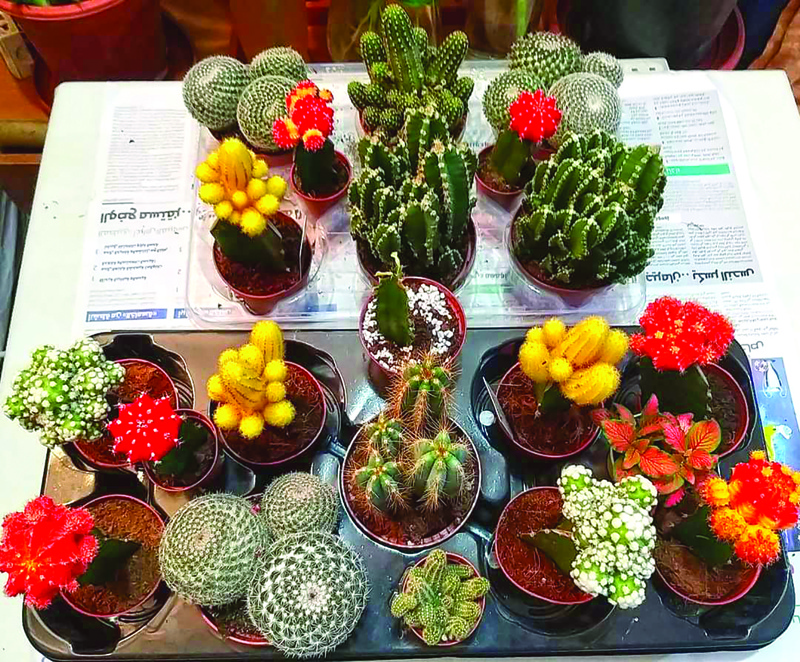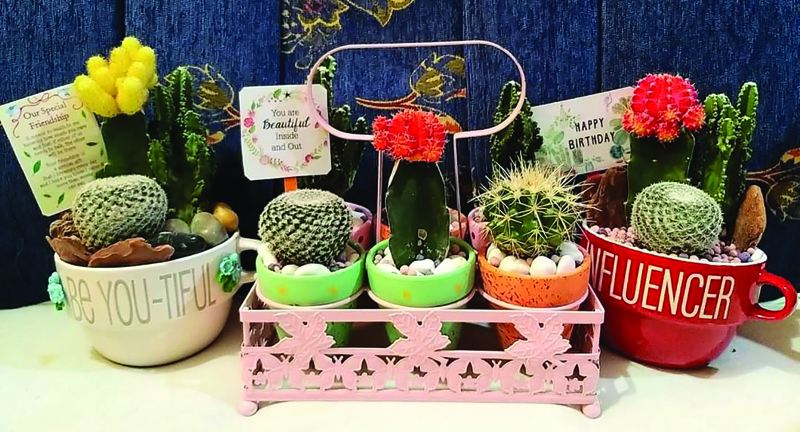
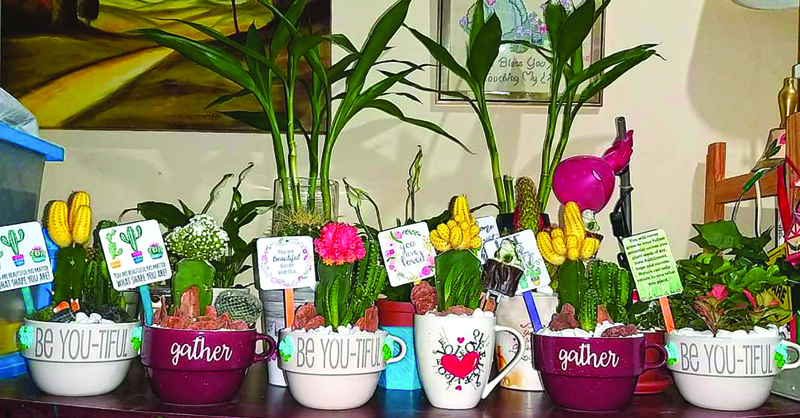
By Ben Garcia
Amidst terminations and an economic downturn during the coronavirus pandemic, many expats found several alternatives to survive. When Yvette, a mother of three, was terminated at the beginning of the pandemic, she turned her passion for baking into a home-based business. "When I was terminated from work, I was devastated. But I immediately knew what was next in store for me. I know we were going to survive because I am a fighter," she told Kuwait Times.
"Even before the pandemic, I was known in the Filipino community for my cheesecakes. A few days after I was terminated, I posted on my Facebook account that I was starting a home-based cheesecake business. I started getting many orders, at first from people I knew, and later from strangers too," Yvette said.
Yvette is one of many such side hustle entrepreneurs, employed in Kuwait but laid off during the pandemic, they've turned to their favorite hobby or freelance business idea to bring in income until they can return to regular work. Selling cheesecakes was a lucrative business at the beginning of the COVID-19 outbreak, but orders started to decline during the lockdown as families realized that the pandemic was here to stay.
"I noticed the change in people's attitude in buying cakes or other food items during the lockdown. Maybe I was affected by other people selling similar products during the lockdown, or perhaps those who were buying from me before were now making their own cheesecakes. I heard people had shifted their attention to plants. So I started researching about the best indoor plants," Yvette said.
"I contacted a friend working at a nursery in Rai, who helped me select the best indoor plants. I started posting them on social media and got an immediate response. I realized plants were the new trend as they are stress relievers, so along with selling cheesecakes, I began selling plants, particularly table plants," she said.
Yvette is married to a Filipino who works at an American camp in Kuwait, but he is still waiting to rejoin the workforce. "Many workers were not allowed to enter American bases because of the coronavirus, which means they have no salary as well. So I needed to do something for our family to put food on the table daily. Seven months without work is a long time for many of us, because we still need to eat and pay the rent," she said. "Without income, we will die."
The most favored and bestselling plants nowadays have shifted from lucky plants to table plants like bonsai and cactus, said Yvette. "The plants I buy from my friend come in dull plastic pots or ugly baskets, so I place them in beautiful vases and sell them accordingly. I am getting more orders now," she explained.
Paying attention to packaging is the best way to win more customers - the product will look better and valuable, so price will no longer matter to many clients. "I know the mindset of many Filipino customers - they are very picky. They will buy the most expensive shoes or bags and don't care much for the price. Even if they don't have enough money, you will see them in the latest branded shoes, queuing alongside Kuwaitis," Yvette pointed out.
Ronnie (not his real name), an entertainment manager, accepted a cleaning job to survive. Ronnie said that his company informed the staff to look for alternative jobs since phase five of the plan to return to normalcy hasn't been approved yet. "We were informed by our boss to look for other jobs since it's unclear when our work - related to children's entertainment - will resume. We are out of jobs for the past seven months now," he told Kuwait Times.
The children's entertainment sector has been shut since March due to the coronavirus outbreak. "In the past few months, I've been going with a friend to clean Kuwaitis' houses. I make KD 1 per hour. At least I am earning something to eat and pay the rent," Ronnie said. He said he is surviving because his wife started to work and has been getting a salary since July. "I've applied and am waiting for a call from companies," he added.
Leni, who works at a fashion retail shop in Al-Kout Mall, uses her spare time to sell anything she can. She buys food from a well-known Filipino restaurant and resells it. "During the lockdown, we did not get anything from our company - not even part of our salaries. So I contacted several of my friends to sell anything I could.
I got food items from a restaurant; sometimes I cooked; even earning half dinar per item is good enough. It's not a regular job, but it helps to survive," Leni told Kuwait Times. "The hardest period of my life in Kuwait was during the lockdown, but I kept my composure because I have four kids back home in the Philippines. So I really do not mind doing anything for the survival of my family," she added.
